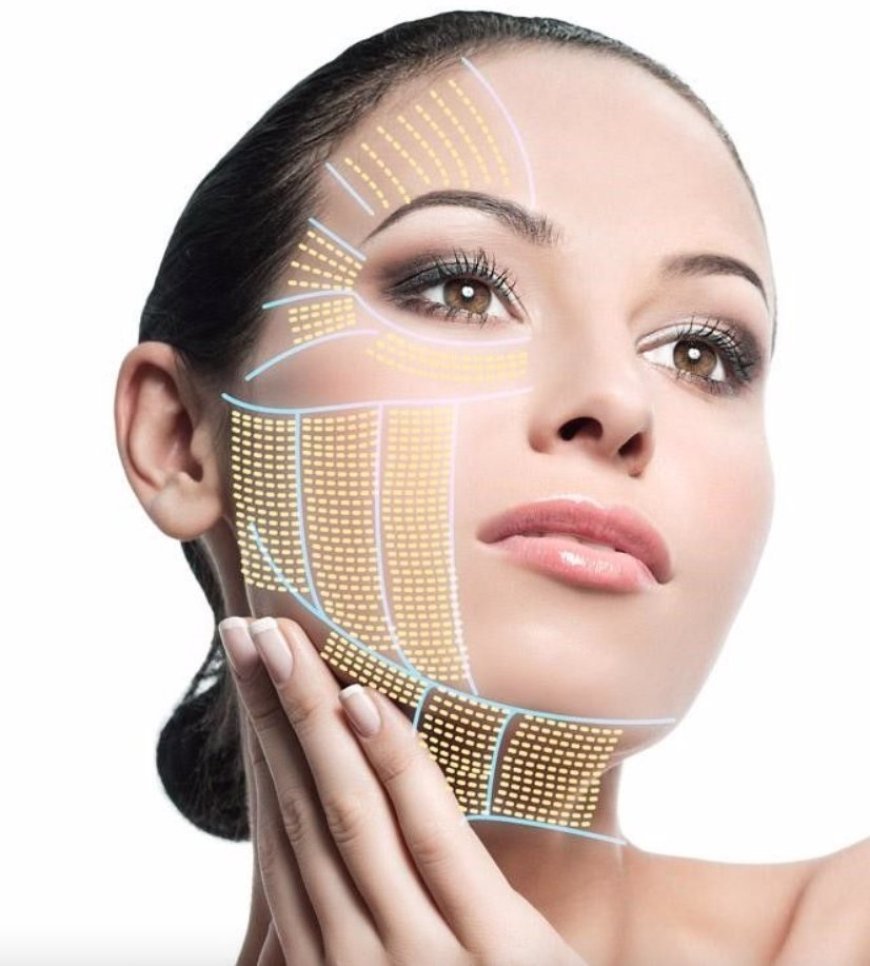HIFU vs. Chemical Peels: Which One Should You Try First?

When it comes to modern skincare treatments, both HIFU Treatment in Islamabad and chemical peels have gained immense popularity for their ability to rejuvenate, tighten, and refresh the skin. Each treatment has unique benefits, making it difficult for many individuals to decide which one to try first. While chemical peels focus on resurfacing the skin by removing dead layers, HIFU works deeper by stimulating collagen and tightening sagging areas. If you are considering non-surgical ways to achieve smoother, firmer, and youthful-looking skin, it’s important to understand how these treatments differ and which one may be the right choice for you. To learn more about HIFU Treatment in Islamabad, it’s worth comparing it with chemical peels to see where each treatment excels.
Understanding HIFU: A Deeper Solution for Skin Tightening
HIFU (High-Intensity Focused Ultrasound) is a non-invasive treatment that targets the deeper layers of the skin, including the SMAS layer that is usually addressed during surgical facelifts. By using ultrasound energy, HIFU stimulates the natural production of collagen, which gradually lifts and tightens the skin.
Key benefits of HIFU include:
-
Reduction of fine lines and wrinkles.
-
Improved skin elasticity.
-
Lifting of sagging cheeks, jawline, and brows.
-
Natural-looking results without surgery.
-
Long-lasting effects with minimal downtime.
HIFU is particularly suitable for individuals with mild to moderate skin laxity who want visible improvement without undergoing invasive procedures.
Understanding Chemical Peels: Surface-Level Skin Renewal
Chemical peels are dermatological treatments that use controlled chemical solutions to exfoliate and peel away the outer layers of the skin. They range from mild superficial peels to stronger medium and deep peels, depending on the skin concerns being addressed.
Key benefits of chemical peels include:
-
Smoother and brighter skin texture.
-
Reduction of acne scars and pigmentation.
-
Treatment for sun damage and uneven skin tone.
-
Stimulation of new skin cell regeneration.
-
Customizable intensity depending on skin type and concern.
Unlike HIFU, which works on deeper layers, chemical peels primarily target surface-level concerns, making them an excellent choice for those dealing with acne scars, dullness, or hyperpigmentation.
HIFU vs. Chemical Peels: Key Differences
To decide which treatment may suit you best, it’s essential to compare them side by side:
| Feature | HIFU Treatment | Chemical Peels |
|---|---|---|
| Target Area | Deep skin layers, SMAS, collagen stimulation | Outer layers of the skin |
| Best For | Skin tightening, lifting, wrinkle reduction | Texture improvement, scars, pigmentation |
| Downtime | Minimal to none | A few days of redness/peeling (depending on peel depth) |
| Results | Visible lifting in weeks, lasting 12–18 months | Smoother skin in days, maintenance needed |
| Non-Surgical Alternative | Yes | No |
| Treatment Frequency | 1–2 sessions yearly | Every few weeks/months, depending on the type |
Which Treatment Should You Try First?
The choice between HIFU and chemical peels depends on your skin concerns:
-
If your main concern is sagging skin and wrinkles → HIFU is the better choice. It works deeper to lift, tighten, and stimulate collagen production for long-term results.
-
If your main concern is acne scars, pigmentation, or uneven skin tone, → Chemical peels are more suitable since they resurface the skin and encourage new cell growth.
-
If you want an overall skin transformation, → Many dermatologists recommend starting with chemical peels to address surface-level concerns and then following up with HIFU to work on tightening and deep rejuvenation.
Benefits of Combining HIFU and Chemical Peels
While the two treatments work differently, they can complement each other for optimal results. Chemical peels refresh the skin’s surface, making it smoother and more radiant, while HIFU works beneath the skin to lift and tighten. When combined strategically under professional guidance, these treatments can offer:
-
Comprehensive anti-aging effects.
-
Improved skin tone and elasticity.
-
Long-lasting youthful glow.
-
Balanced approach to both surface and structural rejuvenation.
Safety and Considerations
Both treatments are safe when performed by experienced dermatologists or licensed practitioners. However, there are certain factors to keep in mind:
-
HIFU: Best for individuals in their 30s to 60s with mild to moderate skin laxity. Not ideal for very advanced sagging, where a surgical facelift may be required.
-
Chemical Peels: Should be chosen carefully depending on skin type. Stronger peels may cause irritation or downtime, so sensitive skin requires mild options.
Always schedule a consultation to determine which treatment aligns with your skin condition, medical history, and goals.
Cost Considerations
The cost of HIFU is typically higher than chemical peels since it provides longer-lasting results with fewer sessions. Chemical peels are more affordable per session but often require multiple treatments for sustained improvement. Both, however, are considered cost-effective alternatives to surgical procedures and can significantly enhance skin quality.
Final Thoughts
Both HIFU and chemical peels offer powerful benefits, but the best choice depends on whether your concerns are deeper (sagging, wrinkles) or surface-level (scars, texture, pigmentation). Many individuals start with chemical peels for immediate brightening and follow up with HIFU for long-term lifting effects. Consulting a qualified dermatologist ensures you receive a treatment plan tailored to your needs.
If you are considering advanced skin rejuvenation, HIFU Treatment in Islamabad is one of the most effective non-surgical methods available today, while chemical peels continue to be a trusted solution for resurfacing and improving skin texture.
For expert guidance and safe, result-driven treatments, you can consult the professionals at Dynamic Clinic. Their experienced dermatologists can help you decide whether HIFU, chemical peels, or a combination of both will best suit your skin’s needs.
What's Your Reaction?



















































